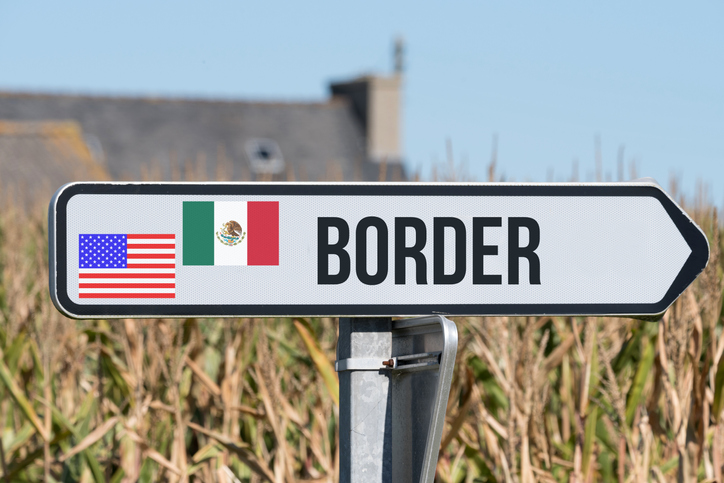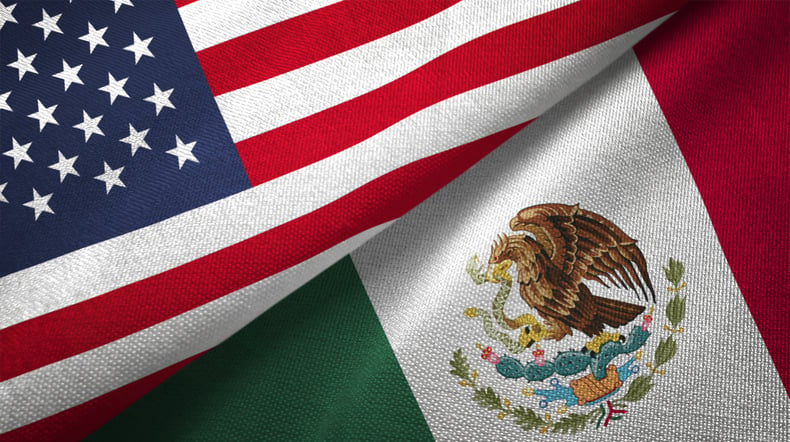In the realm of international shipping and cross border logistics, efficient planning is essential to keep goods moving seamlessly across borders. For businesses engaged in U.S.-Mexico shipping operations, understanding the key holidays in Mexico is critical. Mexican holidays and celebrations can significantly impact cross border shipping schedules, making it vital for logistics consultants and shippers to be well-informed and prepared. Mexicans spending around 20% more during holiday seasons, the demand for efficient and timely shipping services increases significantly.
Understanding these holiday impacts can help you avoid costly delays and meet customer demands effectively. Keep reading to learn how you can stay ahead and ensure smooth cross-border operations during Mexico’s busiest times.
Understanding Mexican Holidays
Mexico is a country rich in culture and tradition, and its holidays reflect this diversity. From vibrant celebrations to solemn observances, Mexican holidays can vary greatly in their significance and impact on daily life.
Holidays in Mexico: A Cultural Tapestry
Mexican celebrations encompass a wide range of cultural, historical, and religious events. Some of the most prominent ones include:
- Independence Day (Día de la Independencia): Celebrated on September 16th, this holiday marks Mexico's declaration of independence from Spanish colonial rule. Parades, fireworks, and patriotic fervor abound. The celebrations begin the night before with the "Grito de Dolores," a reenactment of Miguel Hidalgo's call for independence.
- Day of the Dead (Día de los Muertos): Observed on November 1st and 2nd, this unique celebration honors deceased loved ones with colorful altars, sugar skulls, and marigold flowers. November 1 is known as All Saints Day, and November 2 as All Souls Day. Families visit cemeteries to decorate graves and share stories of their ancestors.
- Christmas (Navidad): Mexican Christmas celebrations often begin on December 12th with Las Posadas and continue through January 6th, the Day of the Epiphany (Día de Reyes). Festivities include music, feasting, and the decoration of nativity scenes. Families gather for a Christmas Eve feast and the midnight mass known as "Misa de Gallo."
- Easter (Semana Santa): Holy Week, leading up to Easter Sunday, is a significant religious observance marked by processions and ceremonies across Mexico. Cities like Taxco and San Miguel de Allende are famous for their elaborate reenactments of the Passion of Christ.
- Revolution Day (Día de la Revolución): Held on the third Monday in November, this holiday commemorates the Mexican Revolution. Parades and patriotic events are common. Communities across the country honor the heroes of the revolution with reenactments and festivals.
- Labor Day (Día del Trabajo): Celebrated on May 1st, this holiday recognizes workers' rights and achievements with marches and rallies. It’s an official public holiday, and many workers use the day to advocate for labor rights and celebrate their contributions.
- Mexican Independence (Día de la Revolución): This holiday, on November 20th, honors the Mexican Revolution with parades and ceremonies. It’s a time to reflect on the social and political changes that shaped modern Mexico.
Mexican Holidays and U.S.-Mexico Shipping
The impact of Mexican holidays on U.S.-Mexico shipping is multifaceted and requires careful consideration by logistics consultants and shippers alike:
- Shipping Delays: Mexican holidays often mean government offices, customs, and some businesses are closed. This can lead to shipping delays, especially if proper planning and communication are lacking.
- Increased Demand: Some holidays, like Christmas and Easter, witness a surge in consumer demand. Logistics consultants must anticipate and plan for this increased shipping activity.
- Supply Chain Disruptions: Mexican celebrations may affect the supply chain, particularly for businesses reliant on Mexican suppliers. Inventory management becomes crucial to avoid shortages.
Strategies for U.S.-Mexico Shippers
In the intricate world of cross-border shipping between the United States and Mexico, the presence of holidays in Mexico can pose logistical challenges. Here are strategies that savvy shippers employ to navigate these occasions effectively.
Advanced Planning
To mitigate the impact of Mexican holidays on shipping schedules, meticulous planning is important. Utilize a comprehensive calendar of Mexican holidays to schedule shipments and adjust timelines accordingly. Factor in potential delays due to office closures and limited business hours.
Effective Communication
Successful cross-border shipping during holidays hinges on open and timely communication. Maintain strong ties with Mexican partners, suppliers, and customers. Engage in discussions about holiday schedules, expectations, and contingency plans to minimize disruptions.
Inventory Management
Implement robust inventory management practices to guarantee an adequate stock level during holiday periods. Collaborate with warehousing and fulfillment companies to ensure efficient inventory control, which is vital for consistent deliveries.
Transportation and Route Planning
Assess your transportation routes and modes to optimize shipping during holidays. Anticipate potential bottlenecks and explore alternative routes to maintain timely deliveries.
Customs and Documentation
Gain a thorough understanding of any special customs or documentation requirements specific to holiday periods. Ensure all paperwork is accurate and complete to prevent delays at the border.
Collaborative Partnerships
Forge strong relationships with logistics partners experienced in navigating Mexican celebrations. Their expertise can be invaluable in crafting adaptable strategies to meet the challenges posed by these festive occasions.
Conclusion
As a trusted logistics consultant, Visigistics specializes in helping businesses optimize their U.S.-Mexico shipping operations, even during holidays. With our expertise, you can develop a robust and flexible logistics strategy that takes into account the rich tapestry of Mexican holidays. Contact us today to explore how we can assist you in ensuring your cross-border logistics remain efficient, timely, and cost-effective throughout the year, regardless of the festivities that may arise.
Frequently Asked Questions:
What are some additional holidays that some employers in Mexico may honor as paid holidays, even though they are not federally mandated?
Some employers in Mexico might offer paid leave for holidays like Good Friday and the Day of the Virgin of Guadalupe, even though these are not required by federal law to be recognized as paid holidays.
What are the federally mandated holidays in Mexico and how are they paid for employees who work on those holidays?
In Mexico, federal labor laws specify certain national holidays during which employees are generally entitled to abstain from work. As per Article 74 of the Mexican Federal Labor Law, if an employee must work on one of these federally mandated holidays, they are entitled to receive their standard daily wage, plus an additional two times that amount, totaling triple their normal pay for the day.
The fixed holidays recognized by the federal government in Mexico are:
- January 1st (New Year's Day)
- May 1st (Labor Day)
- September 16th (Independence Day)
- December 1st every six years when a new President is inaugurated
- December 25th (Christmas Day)
It's also noteworthy that certain holidays like Good Friday and the Day of the Virgin of Guadalupe are acknowledged and celebrated widely, and while some employers might choose to offer these as paid holidays, they are not mandated by federal law.
What is Día de los Fieles Difuntos?
Día de los Fieles Difuntos, or All Souls' Day, is observed on November 2nd in Mexico. It is a day for families to honor and remember loved ones who have passed away, often by visiting gravesites and making offerings.
What are Posadas Navideñas?
Posadas Navideñas are traditional Christmas celebrations in Mexico that take place from December 16th to December 24th. They reenact Mary and Joseph's search for shelter before the birth of Jesus, involving processions, prayers, and festive gatherings.
What are the Civic Holidays in Mexico?
Civic holidays in Mexico are national holidays that commemorate significant historical events, such as Independence Day on September 16th and Constitution Day on February 5th. These days are marked by official ceremonies, parades, and public events.
What is Día de los Santos Inocentes?
Día de los Santos Inocentes, celebrated on December 28th, is similar to April Fool's Day. People play light-hearted pranks on one another in memory of the biblical story of King Herod’s decree to kill male infants.
What is Día de La Raza?
Día de La Raza, or Columbus Day, is celebrated on October 12th in Mexico. It honors the diverse cultures and indigenous heritage of Latin America, recognizing the impact of European colonization.
How is New Year's Eve celebrated in Mexico?
New Year's Eve in Mexico is celebrated with family gatherings, fireworks, and traditions like eating 12 grapes at midnight, one for each month of good fortune. Many people also enjoy festive dinners and parties to ring in the new year.





